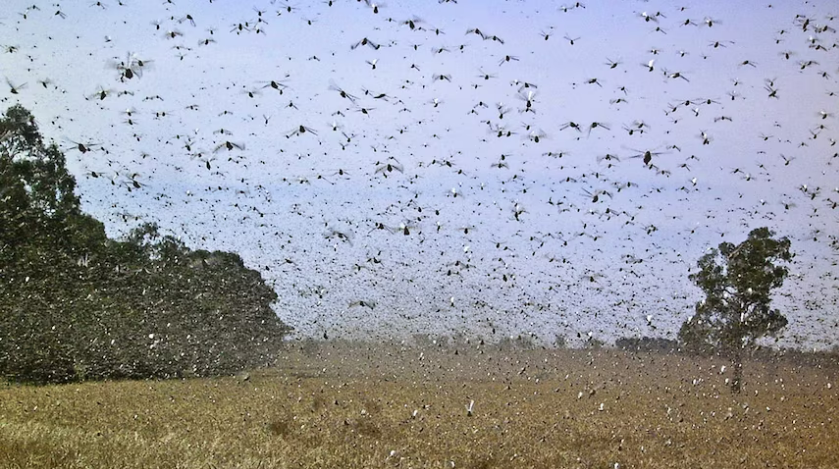Look out for locusts!
Kristin Murdock
18 April 2024, 3:40 AM
 If you spot locust activity on the Western Plains, be sure to contact Local Land Services.
If you spot locust activity on the Western Plains, be sure to contact Local Land Services.Local Land Service are advising farmers to keep a look out for plague locusts as they make their presence felt across the Western Plains.
NSW Locust Commissioner Andrew Mulligan said early reporting of suspected locust activity was the best way to help protect agriculture against the threat.
“We are starting to see locusts in parts of Central Tablelands, Central West, North West and Western Local Land Services regions,” Mr Mulligan said.
Greg Rummery, an agronomist from Outlook Ag at Walgett said while he hasn’t seen big numbers of the insect in his local area, he has heard of their presence north of Lightning Ridge.
“I have spoken with farmers who have seen a few but there’s no word on any banding at this stage,” he said.
He said Walgett’s soils are not conducive to banding. Banding is where groups of grasshoppers or locusts gather in large numbers, often forming bands or swarms, which can pose a significant threat to crops.
These bands typically consist of juvenile grasshoppers, which are more prone to feeding on vegetation compared to adult grasshoppers.
“We are more likely to see this in places like Coonamble,” Mr Rummery said.

Locust swarm in 2020/21. IMAGE: NSW DPI
Mr Mulligan urged farmers to report any activity.
“Land managers need to report plant pest locust activity to their Local Land Services biosecurity officer within one working day after they first suspect or become aware of it and undertake control measures if appropriate,” he said. “This will help to limit potential impacts of plague locusts, which can devastate crops and pastures. Remaining vigilant is the key for landholders as reports made can help inform the management decisions we make now and into the future.”
Mr Mulligan said there were several key signs that landholders should look for to ensure they were quick to respond.
“Adult plague locusts like to lay eggs in harder, loamy red soils, with compact roads next to crops, tree lines, contour banks and farm buildings prime areas,” he said. “Signs of locusts include a series of small holes in the ground, damage to vegetation, nymphs bouncing on the ground and hearing the buzzing noise they make. “Control programs are most effective when landholders work together to monitor, report sightings and undertake control works.”
“Our staff are available to help identify locust species from other types of grasshoppers and offer advice on the best control application to use depending on factors such as the environment and nearby crops.”
Anyone suspecting locust activity on their land should contact their Local Land Services Biosecurity Officer on 1300 795 299.



